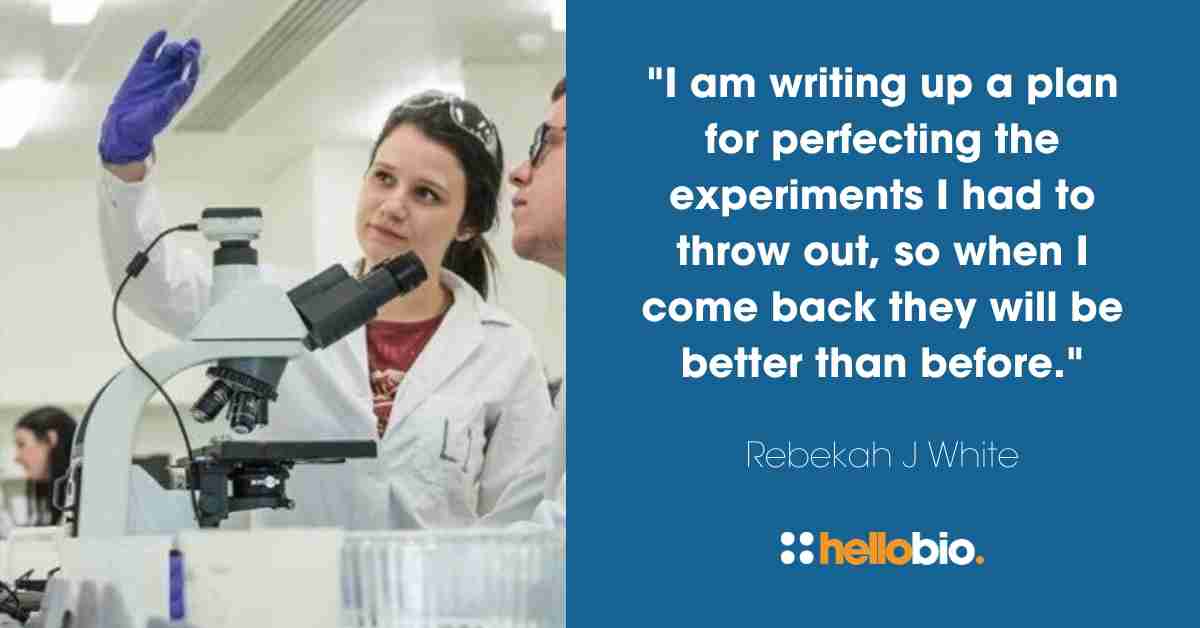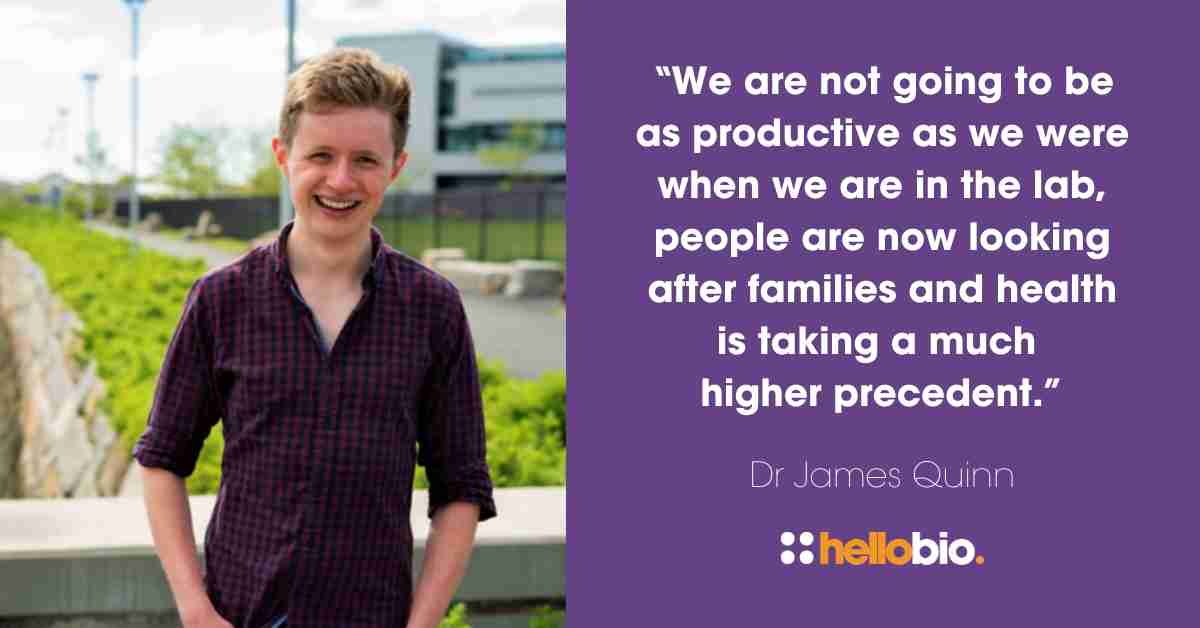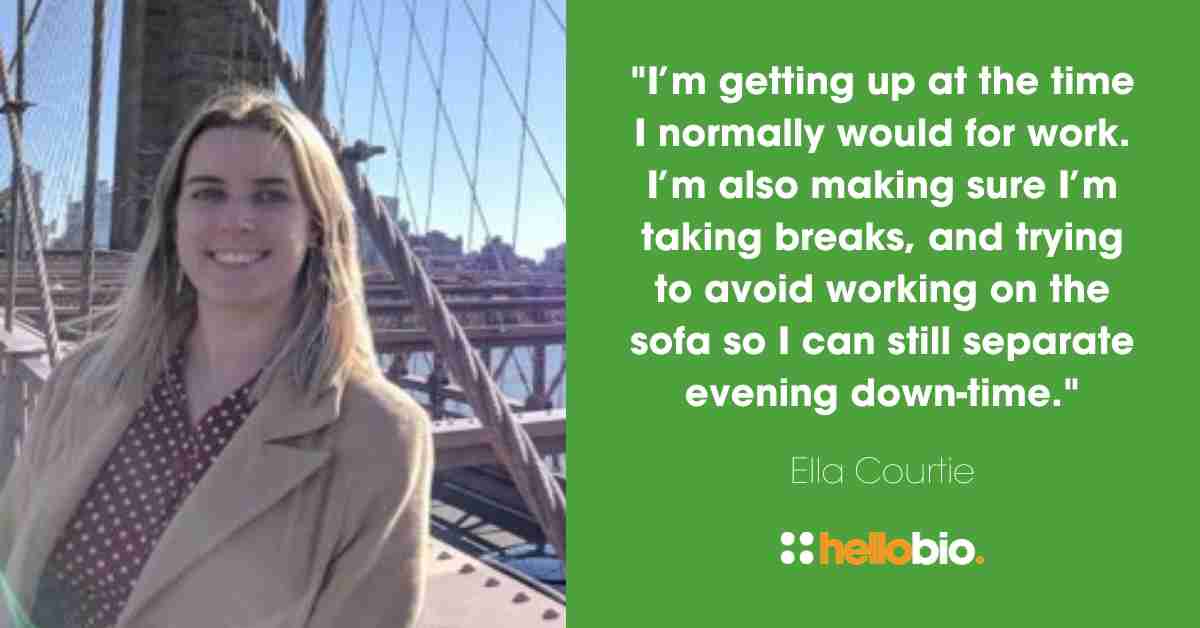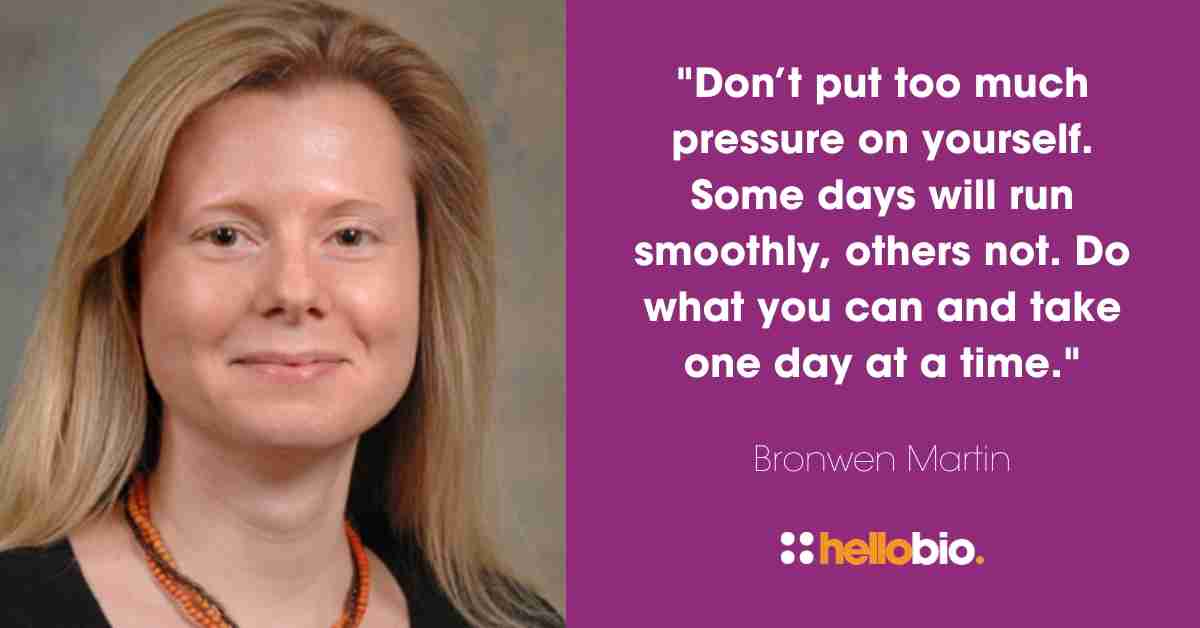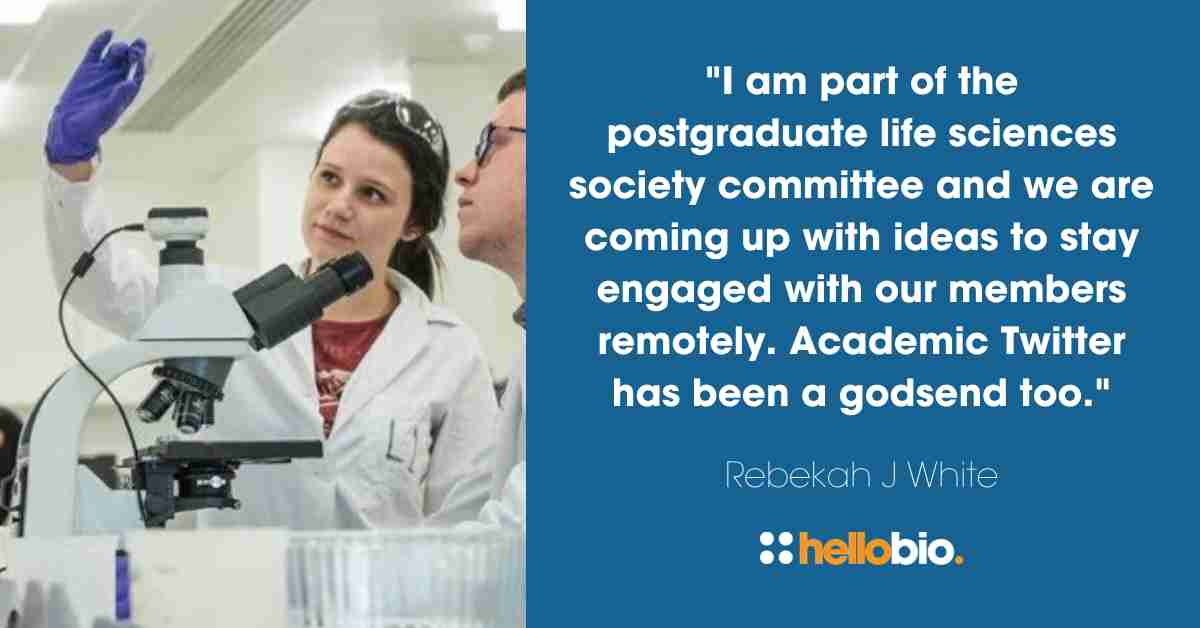The Life Scientists’ Guide to Working Remotely
Like many professions, life scientists are finding themselves in an unprecedented situation right now as the COVID-19 pandemic impacts scientific research around the world.
Many labs (like many other workplaces) have told their teams that they are closing for an unspecified amount of time. That means many life scientists are being asked – in some cases for the first time ever – to work remotely as ongoing research and experiments are suspended. Scientific conferences, which are a staple of many researchers’ careers, are also being cancelled all around the world.
Life science PhDs and postdoctoral researchers are now, with very little notice or preparation, finding new ways to continue their work and be productive to their institutions without having access to their labs and equipment.
So, how are they coping so far? We spoke to some members of our life science community in the UK, USA and Europe to find out what the impact on their research has been, how they’re planning on spending their time away from the lab productively, what they’ve learned from this global situation, and what words of advice and encouragement they have for fellow scientists around the world.
How life scientists and their work have been impacted by COVID-19
The global changes that have happened recently have felt like a whirlwind. Like many other PhDs and researchers around the world, you may be feeling disappointed to have had a conference you were looking forward to attending cancelled (especially if you’ve spent months preparing a presentation), or feeling lost having had your research suspended altogether. On top of all this, like us, you’re probably also feeling a lot of fear and uncertainty.
No matter how we’re feeling, it’s important to remember that we're all in the same boat. Whatever frustrations you’re feeling right now are being felt by life scientists the world over. Reach out to your science community on social media, and remember that we're here to support you too.
Cancelled conferences
As with many other major global events, hundreds of upcoming scientific conferences, from local events (such as Oxford Neuroscience Symposium) to large international meetings (like the AACR Annual Meeting 2020) have now been cancelled.
We were looking forward to meeting lots of you over the next few months at various conferences. While we’re disappointed not to be able to connect with our community face to face, it’s encouraging to see that some organisations (like the AACR) have already announced that they will be hosting virtual events in place of or in addition to the physical events which have been postponed or cancelled.
If you were planning on attending a conference in the next few months and aren’t sure whether it will be going ahead, The Scientist has created a helpful list of disrupted conferences and events here.
As we await the news on when travel and conferences will start up again, we are now offering Early Career Scientist Grants in place of our traditional Travel Grants, which we hope will give scientists more flexibility, as they can be used for virtual conference fees, publishing fees, training, equipment and more.
Labs shutting down and research going on hold
As more and more countries are seeing lockdown measures which call for workplace closures unless work is deemed “essential”, many labs are closing for an as yet unspecified amount of time. Of course, the impact on this for a lot of scientists in our community is that their research can’t continue for the time being.
James Quinn, who’s a Research Fellow in Neurology at the Alzheimer's Clinical Trial Research Unit, Massachusetts General Hospital, told us: “We entirely shut down our lab starting on 13th March. This meant that all cells were frozen down, biomarker assays put on hold and molecular biology stopped.”
PhD Student Ella Courtie from the Institute of Inflammation and Ageing, University of Birmingham has also seen her research suspended indefinitely. She said: “There hasn’t been a date suggested for when we can start up again, so for now the study’s on hold. I’ve been working from home since earlier this week after instruction to do so from my supervisor. The university has moved everything online to help with social distancing, and the rest of the Neurotrauma research group (which I’m part of) are doing the same and will be working from home.”
James adds that, while of course a lot of scientists are disappointed, there is a real need for these measures: “The price of this is minimal in comparison to the benefit this can have to help flatten the curve. My sister and mum both work for the NHS in the UK as nurses, I understand how the actions we are taking will help to halt the spread of this pandemic.”
Hard work being lost
When it comes to scientists who have been preparing for experiments as part of their research, lab closures mean that in some cases, researchers have lost months’ of hard work and preparation which will need to be re-done when labs re-open.
Rebekah J White is a PhD researcher in the evolution and genetics of ageing and late-life disease at the University of Exeter. She highlighted not just the practical impact, but the emotional impact lab closures will also have for many passionate scientists.
Rebekah said: “Some colleagues may lose entire major experiments and months of work. I asked my PI if he thought my appeal to continue my work would be accepted. He gave me a sad smile, and said: “It’s time to say goodbye to your worms”. So, I put my stock nematodes into storage, dropped my experimental crosses into the biological waste bins, and sprayed down my bench for the last time in a while. Yes, I did apologise to the nematodes as the petri dishes fell from my hands, and I do feel sad that I cannot see this experiment through right now…. However, I have been growing increasingly worried about higher-risk friends and family, so while I am sure it was a tough decision for many, closing is for the best.”
Practical support for working from home
Like workers in many other professions, most life scientists we’ve spoken to have told us that they’re now being asked to work from home.
But, when you’re used to working in a lab, following a routine, and spending the day with your team, how easy is it to make that transition, and how are lab teams making sure work continues to run smoothly?
Embracing flexibility and doing things differently
Despite the fact that any physical lab activity such as experiments, practical exercises, workshops, meetings, etc. have been put on hold, it seems that life scientists aren’t resting on their laurels and many are embracing what flexibility they now have.
Maria Montefinese, a PhD in Functional Neuroimaging at the University of Padova in Italy says: “To some extent work as a life scientist is flexible. Our work cannot be stopped by a quarantine because there is always something important we can work on. I think that my university is adopting very efficient measures against the COVID-19 and so far all staff are carrying out activities (from research to teaching) remotely. For example, lessons, laboratory courses, exams, degree dissertations are exclusively held via electronic communication (e.g. via Zoom or Moodle platforms).”
She added that she’s embracing this time to focus on her writing and reading: “Since it is not possible to collect data for new studies, I am taking advantage of this time without outside world distractions to write papers. I am also reading papers to write a more theoretical article.”
If you’re doing the same, and looking for tips on productive writing, Maria wrote this excellent blog post for us focusing on just that.
Focus on your writing
Maria isn’t the only scientist who told us she’s taking advantage of time outside the lab to focus on her writing.
Although the practical element of her PhD research can’t continue at the moment, Ella Courtie told us: “I’ve brought everything home from work which can help me to focus on working remotely. I’m going to continue working on a pilot paper I’m mid-way through, analysing the data I’ve collected from study participants we’ve already measured, and also get a chapter plan and skeletal structure together for my PhD. This is a good time to get my head down and do lots of writing!”
If you’re planning on doing the same as Ella and Maria, you might want to check out our Life Scientist's Guide to Writing Scientific Papers.
Work on those projects you’ve been putting off
As well as writing, this could also be a great opportunity to make time for projects that you’ve been putting off due to lab work taking priority. If you’re wondering what you could work on, it’s worth having a conversation with your PI or supervisor to see whether they have any ideas.
Rebekah J White told us that she’s now really excited to be working on something different: “My PI has been incredibly understanding and has made it clear that health and ‘staying sane’ comes first, and has worked with me to come up with a mini project. I have decided to spend time on a literature review I have been toying with for a while, and am surprised how excited I am to get stuck into it. I am also writing up a plan for perfecting the experiments I had to throw out, so when I come back they will be better than before.”
A few more working from home ideas...
- Plan your future experiments: use this time to write down ideas, think about methods, research suppliers, get quotes (we’re here to chat if you like!)
- Social networking: find and connect with other scientists on social media, share their content, and engage with their research to build your personal connections
- Read up on your subject: spend some time reading that stack of scientific articles that's on your reading list, and ask fellow scientists in your field for their top reading recommendations
- Develop professionally and personally: we have plenty of online guides, from advice for new PhD students, to writing scientific papers, to saving costs in the lab, as well as lots of brilliant articles written by scientists on our blog
- Write a blog and share your experiences / advice: we’re always welcoming new contributors to our blog, so if there’s a topic you’re passionate about that you’re burning to write a blog on, get in touch.
- Set up video chat groups: as virtual communications replace real communications in both our work and social lives, keep in communication with colleagues, friends, and family with groups on WhatsApp, group video chats on Zoom, etc.
- Teach your kids something about your work: got kids at home? Use this opportunity to teach them something and practice your science communication skills by talking to them about your work in a way that’s simple and engaging
The remote working lessons life scientists have learned so far
With big change often comes big lessons. When we’re forced to step outside of our daily routines and comfort zones, we can often find positives and different ways of thinking. We can also end up surprising ourselves in a lot of ways.
Here are some of the lessons our science community have learned from this experience so far.
Take the pressure off yourself
When we care passionately about our work, it’s easy to pile the pressure on ourselves. What’s more, with our normal routines being disrupted and not feeling able to fulfil our usual definition of “productive” it can be easy to go into overdrive to compensate for this. But we need to remember to be kind to ourselves in this emotionally disruptive time.
Rebekah J White agrees that taking pressure off ourselves right now is really important. She says: “I have [already] learned not to put pressure on myself to be as productive as I would be on a normal working day, because this is a significant adjustment. Society is going a bit crazy outside, and people in our lives may be at risk. I have realised that I should make the best of it, and simply do what I can with regard to my work and supporting other researchers from afar.”
James Quinn adds: “We are not going to be as productive as we were when we are in the lab, people are now looking after families and health is taking a much higher precedent.”
Stick to a routine
A lot of us are used to getting up, showering, getting dressed, and heading into work Monday to Friday. Sometimes even on weekends when we have important experiments that need our attention. Scientists are hard workers naturally. But when faced with that daily routine being taken away, finding motivation to get up and get on can feel difficult.
Ella Courtie told us that she’s realised the importance of having a routine in keeping her motivated. She says: “I can get distracted easily at home, so to help focus I’m getting up at the time I normally would for work. I’m also making sure I’m taking breaks, and trying to avoid working on the sofa so I can still separate evening down-time from working. Splitting my day into working blocks is also helping keep the focus.”
For those of us who are facing the challenge of balancing work and looking after children, having a schedule is even more important. Bronwen Martin from the University of Antwerp advises: “Have some quiet time or nap time for the kids, during which you can get some work done. Don’t put too much pressure on yourself. Some days will run smoothly, others not. Do what you can and take one day at a time.”
Communicate regularly, and digitally
While in-person communication isn’t possible, a lot of us are suddenly relying on digital communication more than ever before. For some of us, it’s the first time that we’re hosting meetings and workshops virtually, and a lot of us are now taking our social lives online too.
James Quinn, who’s based in Massachusetts USA but has family in the UK, says: “We have transitioned a lot of our communication to Slack, Skype, Facebook, WhatsApp and Zoom, these have all been extremely helpful in maintaining some sense of normality in these surreal times!”
Ella Courtie adds: “We have a WhatsApp group so everyone can talk in that, as well as clarify any confusion with the current situation. I’ll still be in regular phone contact with my supervisor to keep each other up-to-date with everything I’m doing and make sure I’m staying on the right track. As a lab group, we intend to still have our weekly lab meeting and presentation by video-call, which will be a fun experience!”
Embrace the headspace
For a lot of us working in research and academia, our default setting is “go go go”. But right now, we have the opportunity to take a step back from the constant doing and look at the bigger picture. We can find time for things we’ve been putting off, and take valuable “thinking space” to consider new ways of doing things now that pressure to deliver has temporarily eased.
Maria Montefinese emphasises how much of a gift this could be: “How many times did we ask for a moment to put together new ideas for a project, or time to analyse the data of a new study, to write an article or a project to get a new fund, or simply to catch up with the new literature? This is the right moment to do all of this.”
Final words of encouragement for fellow scientists
While the impact on life scientists’ work as well as physical and mental wellbeing is undeniable at this difficult time, as always we have been incredibly heartened to see how our community is pulling together to support each other.
And so, we wanted to end this guide with some words of encouragement from our community in these unprecedented times.
You aren’t in this alone
This is the most important thing to remember: you're not alone. The emotions you’re going through are being felt by thousands of scientists the world over.
Now is the time to really pull together and support each other, use our networks to share how we're feeling, and reach out to each other proactively.
Rebekah J White says: “I am part of the postgraduate life sciences society committee, and we are coming up with ideas to stay engaged with our members remotely, such as developing a guide titled: “Working At Home Without Going Crazy”. Academic Twitter has been a godsend, too – [knowing] I am not alone in this strangeness.”
She adds: “There is no denying this is frustrating and disappointing, but remember it is happening to the whole research community. All we can do is make the best of it, look after those we love where we can, and look forward to restarting. We are sitting in what will be an interesting piece of history.”
Be proud of yourself and focus on the now
While your usual research may be on hold, try not to get despondent (we know it’s tough). Remind yourself regularly of the important work you have done, and will continue to do when you get back to the lab. Right now though, if you want to make a difference, focus on ways you can make an immediate impact on others.
James Quinn says: “We can and we will get through this, maybe life may change in the future, but at the end of the day, you should be incredibly proud of your research and the difference you are making. If you can and are able, please reach out and provide support to friends, neighbours and family, this is especially pertinent for me, as I'm greatly missing my family back in the UK right now.”
He adds: “There are many institutions that are struggling right now, think about your local food banks and kids who are out of school, if you can do anything to help them, please think about it. I'm going to take the money I was spending on a gym membership, and donate this money to a local food-bank instead.”
Focus on the opportunities
Instead of focusing on all the things we can’t do right now, try to focus on what we can do. We know it’s difficult amidst all the uncertainty and fear, but scientists like Ella Courtie are actively looking for ways to make the best of this time.
Ella says: “It’s a strange situation to be told we can’t research, and then not knowing when we can start again. Rather than getting stuck on the fact I can’t collect data, I’m looking at this as an opportunity to work on my writing skills. One of the PIs in our lab made the very good point that you rarely get a decent block of time to focus on writing, so this is a good opportunity to do so. I’m early on in my PhD, but can use this time to plan my chapters and even start writing them.”
Maria Montefinese adds: “Since our outside activities are not allowed (or are limited), we can use this time to discover new activities to do at home. We are so lucky to live in the internet era where everything we would like to learn is probably somewhere on the web and we can search it by ourselves comfortably from home. So, my advice is do not get bored! Use this time to your advantage by being proactive, engaging in self-care activities and being productive while staying at home.”
Be kind, and remember this is temporary
We won’t be in this situation forever. While focusing on what we can do in the present, we also need to remember that this is all temporary – though it may well change a lot in terms of how labs and other workplaces operate in future.
Ella Courtie says: “It’s a really confusing time in more ways than one, but it won’t be forever. I’m speaking to my family often which helps, and getting on with things best I can. Unnecessary scaremongering won’t help anyone, so let’s just be kind, understanding and helpful where we can.”
________________________________________________
Huge thanks to our contributors for sending us their thoughts so quickly this week, thank you for supporting your fellow life scientists!
Here’s where you can connect with them on Twitter:
- Rebekah White: @rebekah_jwhite
- Dr James Quinn: @TweetwithQuinn
- Ella Courtie: @EllaCourtie
- Maria Montefinese: @MaryMontefi
- Bronwen Martin: @BronwenMMartin
Other resources you may find helpful:
________________________________________________
If you enjoyed this article and are stuck at home, away from the lab, why not check out the other resources available on our blog. We are passionate about supporting life scientists, early career life scientists and PhD students - with really low- priced reagents and biochemicals, grants and resources to help with both personal and professional development. We know how tough it is - so we hope you find these helpful!
Advice & guidance for life scientists
Click below to view our essential guides and articles to support life scientists, PhD students & early career life scientists:
Wellbeing for scientists
Click below for our resources to help improve your wellbeing:
Technical resources
Try our Molarity Calculator: a quick and easy way to calculate the mass, volume or concentration required for making a solution.
Try our Dilution Calculator: an easy way to work out how to dilute stock solutions of known concentrations
And - when you get to the stage of planning your experiments, don't forget that we offer a range of agonists, antagonists, inhibitors, activators, antibodies and fluorescent tools at up to half the price of other suppliers - click below to see how we compare with other suppliers:








